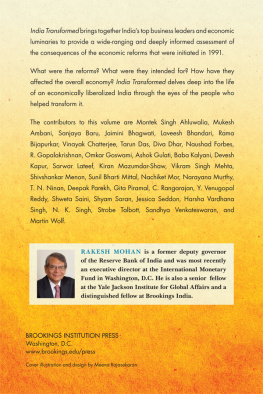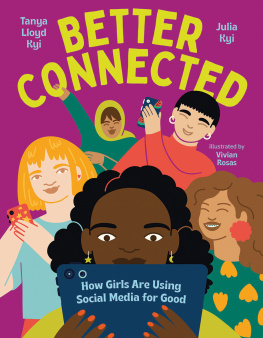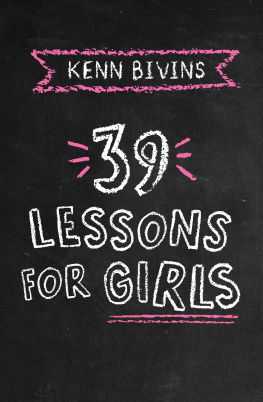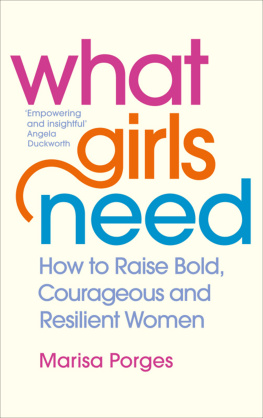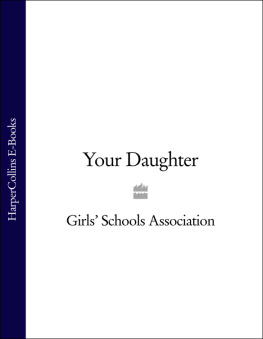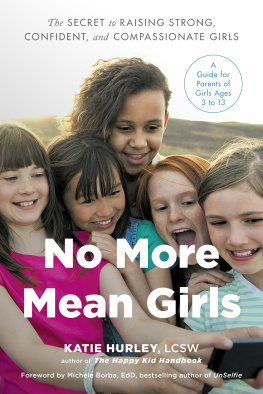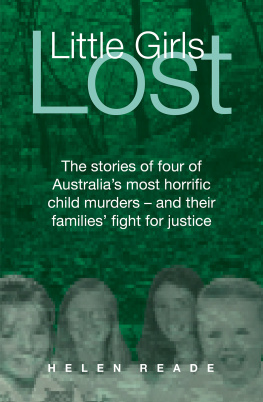
Reaching for the Sky
Empowering Girls through Education
Urvashi Sahni
BROOKINGS INSTITUTION PRESS
Washington, D.C.
Copyright 2017
THE BROOKINGS INSTITUTION
1775 Massachusetts Avenue, N.W., Washington, D.C. 20036
www.brookings.edu
All rights reserved. No part of this publication may be reproduced or transmitted in any form or by any means without permission in writing from the Brookings Institution Press.
The Brookings Institution is a private nonprofit organization devoted to research, education, and publication on important issues of domestic and foreign policy. Its principal purpose is to bring the highest quality independent research and analysis to bear on current and emerging policy problems. Interpretations or conclusions in Brookings publications should be understood to be solely those of the authors.
Library of Congress Cataloging-in-Publication data are available.
ISBN 9-780-8157-3038-5 (pbk : alk. paper)
ISBN 9-780-8157-3039-2 (ebook)
9 8 7 6 5 4 3 2 1
Typeset in Garamond
Composition by Westchester Publishing Services
To the struggles and smiles of daughters everywhere in the world
Contents
Foreword
Joyce Banda
Former President of the Republic of Malawi
It was in 1987 that I first started advocating for womens empowerment and rights. This was after I had walked out of an abusive marriage. At a time when women did not and could not walk out of an abusive situation, I had found the courage to do so. When I rebuilt my life and confidence, when I had my own business and financial security, and a meaningful life for myself and my children, I looked back and wondered about those women who didnt have the courage to do what I did. It was then that I started the National Association of Business Women to promote womens economic independence and equality in the household.
Urvashi, like me, also started her work as a womens rights activist in the late eighties in India, driven to action following her cousins death. As a young woman, she had tried to fight and negotiate the gendered cultural limitations forced upon her. Later in life, however, she came to her much-valued realization that being a woman was about being an equal person, [and] having equal rights in society. Many years later, as an educator, Urvashi now teaches this important lesson to her students at the Prerna School, which she established for the empowerment of the poorest and most vulnerable girls who are denied education and wholesome childhoods due to poverty, abuse, and neglect.
This mission is one I deeply admire as it highlights our shared belief in the value of holistic and rights-centered education of the girl child. In 1997, after receiving the Africa Prize for Leadership for Sustainable End of Hunger, I decided to leverage that recognition to improve girls education in my country by establishing two primary schools and one secondary school. Rights education is the binding principle of the schools curricula: teach the girl child, so that she is aware of her rights from an early age. Not only does this benefit her academically, but also empowers her later in life.
Urvashi takes the idea of rights education still further in her practice at the Prerna School and advocates for a Critical Feminist Education for girls early on, so that the girls reflect on their circumstances, understand the social and political structures that frame their lives, and learn to resist those structures. She demonstrates how a school can construct all teaching and learning efforts to ensure that when a girl finishes school, she has a perception of herself as an equal autonomous person deserving respect and having equal rightswhich is one of the key objectives of the Prerna School.
This books unique strength lies in the way Urvashi unpacks the problem of girls education and rights, by integrating the voices of the girls and teachers with her own voice. As the girls narrate their stories, we learn about their everyday struggles of living in extreme poverty in a gendered world, and we are reminded of the many obstacles they face as they try to survive their realities. The book then leads us to see a hopeful solution in the education model of Prerna: reflections from teacher, girls, and their parents shed light on the tools and interventions that have empowered many girls to rewrite their life narratives.
Affirming the complexity in providing a meaningful education to girls in poor and patriarchal societies, this book recognizes that schools and teachers need to do many things to succeed: paramount is taking a whole-of-girlhood approach. This means looking at girls lives as a whole, and responding holistically to their many needsbe they social, emotional, or physical. A school must not only build up her aspirations, but also provide her with the tools and necessary skills to fulfill them.
One lesson that I never fail to teach girls in my school is to have a mission in life and to state it at a young age. Prerna School offers guidance on how such practices ought to be formalized in schools: the girl child states her aspirations, and it filters through her parents, as they engage with her stories from school about having a mission in life. Such dissemination of ideas toward parents is critical for building vested interest in their girl childs education. This is what I call building the demand side of girls education and empowerment.
We need to mobilize families and communities to promote mindset and behavioral changes toward girls and women. Here, schools and teachers have a meaningful opportunity to be a driving force for change at the household level because they are respected by the community. If, for instance, teachers assume leadership and work with mothers and women in the community to form strong networks to support women, the ultimate benefit will be to girls. In this framing, Urvashi also draws our attention to how empowered girls themselves go on to advocate for their mothers and other women in their communities.
For a daunting and complex task, Prerna shows it is possible and doable. Girls education lives up to its full promise only when schools, educators, and communities aim to truly transform girls lives by empowering them with voice, agency, and a recognition of their own worth as equal persons.
I do believe, truly, that our continents and countries, are going to change for the better if we, who come from these societies, take the lead and inspire the global community toward action. Urvashi is setting a brilliant and ambitious example, and it is my honor to write this foreword as a testament and ode of inspiration.
Preface
This book tells the story of how one small school in India kept girls in school and made sure they graduated. The students faced all the challenges that poor girls face in any country, with conditions and compulsions at home that were not supportive of learning, thus putting them at great risk of being pulled out of school. If their mothers lives and the condition of their own lives at home were any indication, one could not have predicted the trajectory their life journeys would ultimately take. It also tells the story of how this happened from the perspective of the girls and their teachers. Books or discussions about education are seldom told from this important perspective.
In the pages that follow, I look at the school, Prerna, closely, at the key actorsthe teachers, the students, their parentsand present their perspectives, along with mine as founder of the school. Most important, I describe the school from the lens of the students, especially six girlsLaxmi, Aarti, Khushboo, Sunita, Kunti, and Preetiwho studied in Prerna for over six years and graduated a few years ago, focusing on what the school and the education, the teaching and learning in the school, meant to them and why. Though ideally schools should be for students, their lives and their voices are often invisible and inaudible components of discussions about schools and education. In such discussions, goals, processes, pedagogies, curricula, achievement scores, assessments, attendance, retention, and various policies are all described in detail, but we never hear from the students about what this means to them and does or does not do for them or for their lives. We seldom get a sense of their lives at home, the challenges presented by their lives, the specific needs that arise, or whether the education they get meets their needs.
Next page

